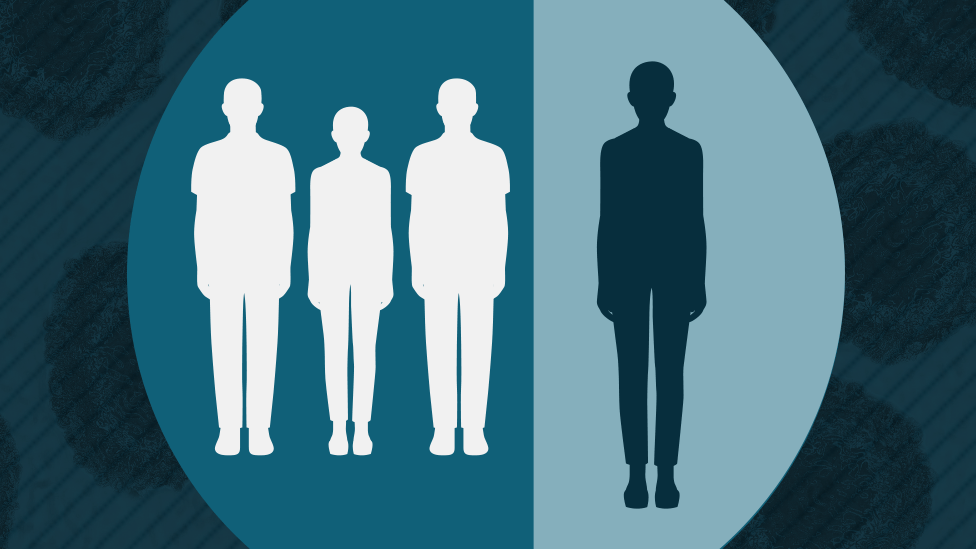Coronavirus: How professional cleaners are dealing with the outbreak
- Published
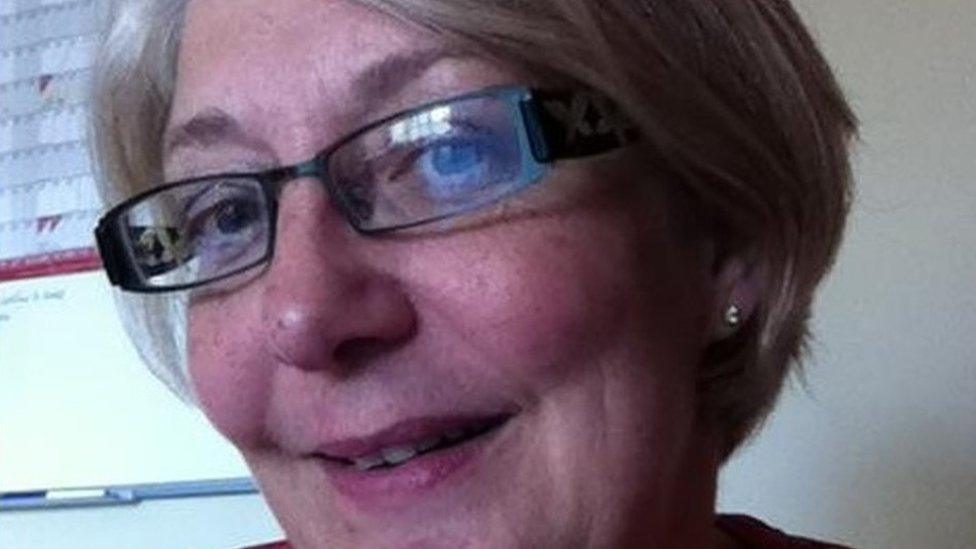
Deb Lawrence said her cleaning firm has been busy as more cases of coronavirus emerged
As people try to protect themselves from coronavirus, the services of cleaners are in high demand. But how are those tasked with protecting others keeping themselves safe?
"It is frightening really," says Deb Lawrence, 60, who runs a cleaning business in Dudley in the West Midlands.
Ms Lawrence was part of a team which recently deep-cleaned a doctor's surgery after a patient was sent for Covid-19 testing.
The group had to wear personal protective equipment (PPE), and used colour-coded equipment to prevent cross-contamination.
"Thankfully it wasn't a confirmed case, which was a big relief," she said.
'Did I miss a bit?'
Her son Alex, 28, who went out on the job, said: "It can be quite alarming for the public if they see you in your suit and mask so we try to clean at times when we won't be seen as much.
"When you get in a space where there's a suspected outbreak, it takes a lot more concentration.
"You're thinking about whether you've put on your PPE correctly, have you got enough water to mix the chemicals to the right ratio, have you squeezed out sponges and mops thoroughly?
"Then you're thinking - 'Have I cleaned every possible surface?'
"That's the thing you think about a lot because you've been trusted to go in and do a job and that job is ultimately about keeping people safe, so it's a big responsibility."
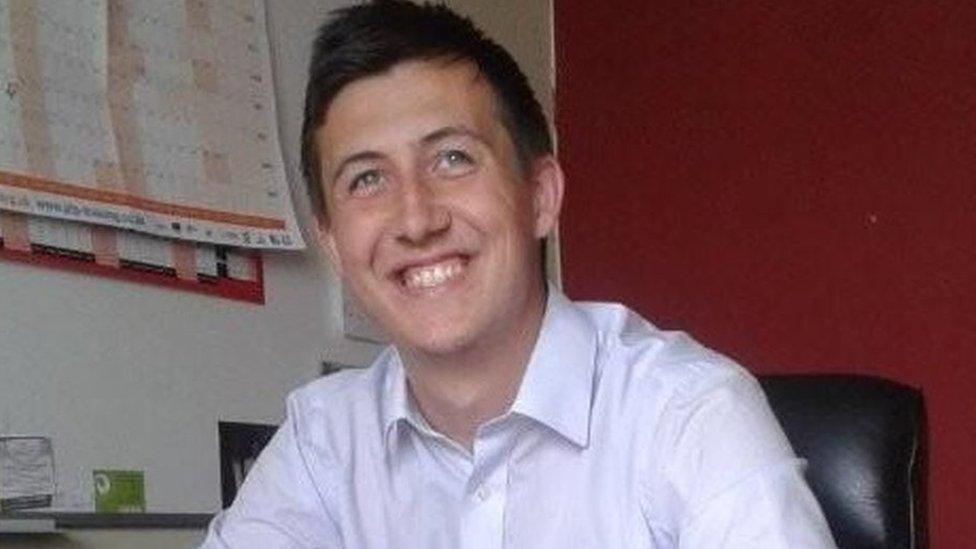
Alex Lawrence said deep-cleans take "a lot of concentration"
Deb Lawrence said the job can be exhausting, physically demanding, and staff were under a lot of pressure.
"For example, a team of 15 of us went in to deep-clean a school and it took each of us four hours to clean our individual areas," she said.
"People don't realise that we're in the middle between the health service and the average person - we're the people tasked with keeping everyone safe in work, schools, at the doctors and dentists, so we take it very seriously."
Staff at Mrs Lawrence's company, which employs 300 people aged between 18 and 75, have become worried about contracting the virus themselves.
She said she was "conscious of the vulnerabilities of our older staff", but would "never put them in a situation that would put them at risk".
"A lot of the girls have been worried, asking what would happen if they got sick, how best to protect themselves.
"If we found out they were at risk, we'd pull them out straight away."
Ms Lawrence said her company had refreshed its training and protocols, keeping staff updated on the latest safety advice.
"It's such a new experience in dealing with this that we've had to be respond to things as and when they've happened too," she said.

Top tips from the professionals
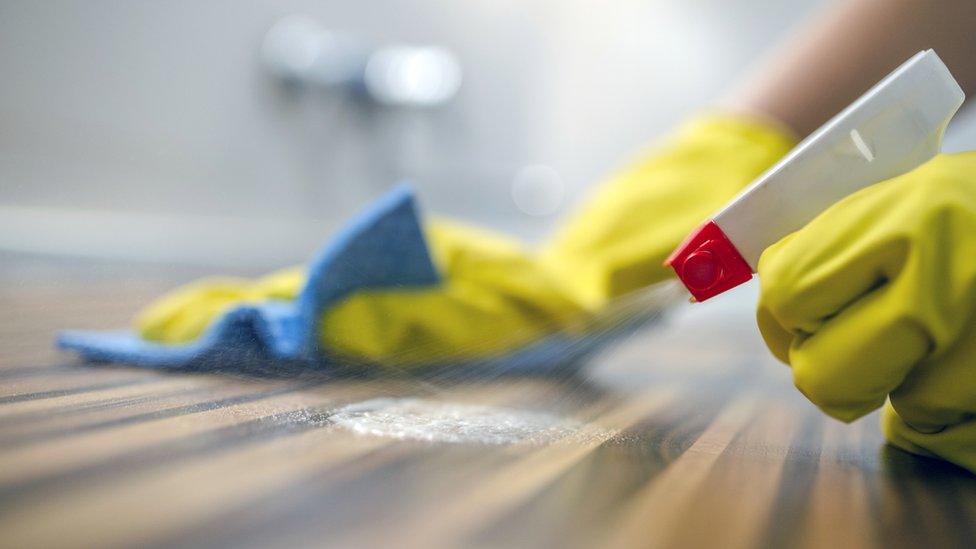
Clean your entire home often, not just once a week
Pay special attention to areas such as the kitchen and bathroom
Touch points, such as door handles, push pads and telephones, are a particular concern
Use a good quality antibacterial spray or wipe as well as soap but be mindful of any allergic reactions your family members may have.

'I'm two weeks from retirement - I won't go back'
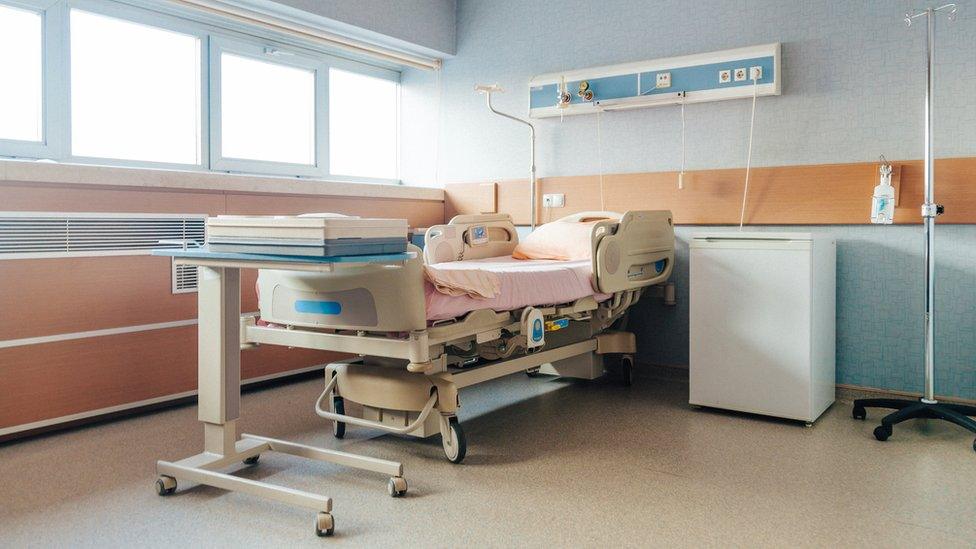
Stephen Hill is responsible for sterilising hospital beds (stock picture)
Stephen Hill, 64, from Norwich, cleans emergency departments.
"I'm only two weeks away from retirement and so I don't want to get infected," he said.
"I do clinical cleans - which involves sterilising a patient's area with chlorine - and the thing is, you don't know what they have.
"I don't feel particularly safe at the moment; we're just all getting on with it.
"I put a lot of pressure on myself to keep up high standards, but with cleaning things like touch points - door handles - they're only as clean as they are before someone else touches them.
"I know other people who are also due to retire soon and we're worried we'll get called back in.
"Even if I get the call, I won't go back - I have lung problems and ultimately you might be putting your life at risk."
Izzy Hussain, 45, who owns a domestic cleaning company in Wolverhampton, said most cleaning was "just common sense".
"I think we all know what to do but we've just forgotten or taken cleaning less seriously as our lives have got busier," he said.
"We have a lot of vulnerable clients - elderly people and working families with children too, and it's easy to overlook things.
"With this scare - and it is scary - we've been wearing disposable gloves out on jobs to protect ourselves, but otherwise our standards have remained as high as they've always been.
"I would just say it's time to go back to basics and clean your home not just regularly but often."
Find out how many confirmed cases of coronavirus there are in your area:
If you can't see the look-up click here, external
The professionals have welcomed new hygiene measures being adopted by the public.
Ms Lawrence said: "It sounds funny to say but obviously business has increased as a result of this but that's not our primary concern.
"It's about making sure we put our staff and clients' minds at rest.
"Though it has made our lives easier knowing that at least some people are upping their personal hygiene routines."
Hospital cleaner Mr Hill said he wished more people would "take it seriously".
"It's very frustrating to see that some people aren't sticking to the advice," he said.
"If all this at least raises awareness of what cleaners do, that would be a good thing."

EASY STEPS: What can I do?
PROTECTION: Where are we with a vaccine?
GETTING READY: How prepared is the UK?
VIDEO: The 20-second hand wash

Follow BBC West Midlands on Facebook, external, on Twitter, external, and sign up for local news updates direct to your phone, external
- Published28 September 2020
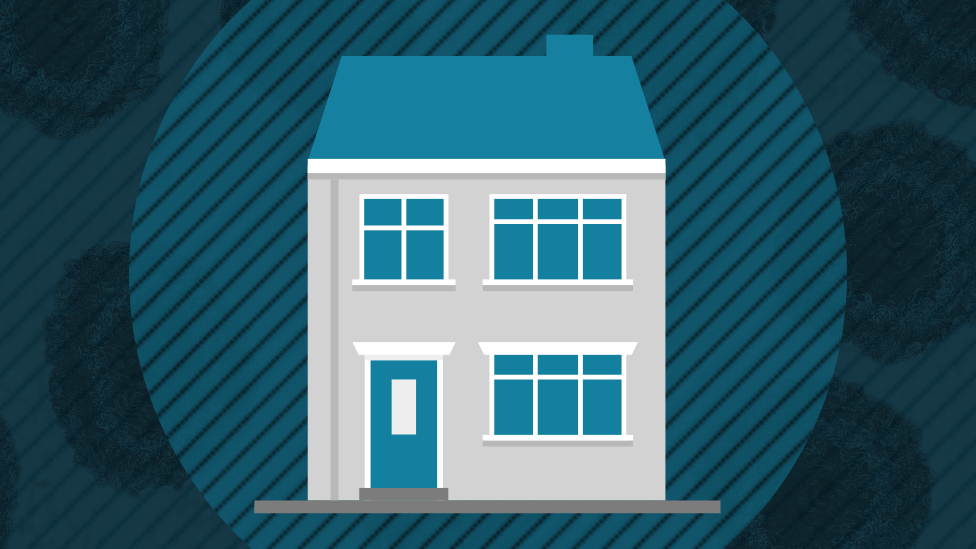
- Published5 July 2023

- Published25 January 2022
